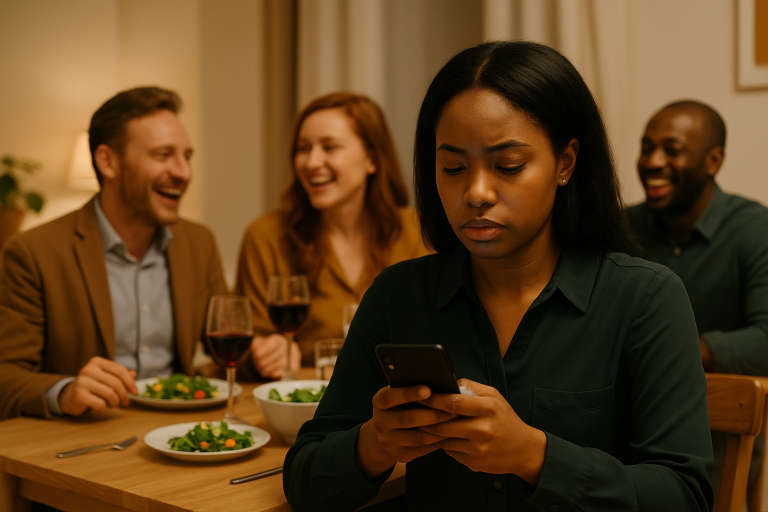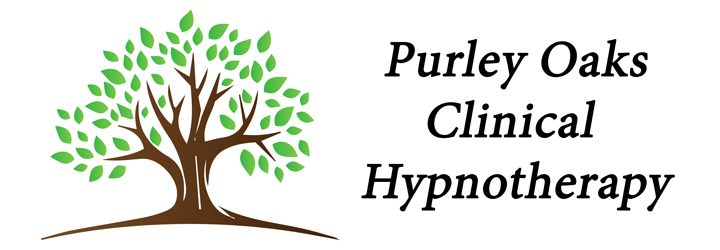Smartphone anxiety, also known as nomophobia (the fear of being without your phone), is a growing concern, particularly among the Gen Z. It describes the anxiety and stress experienced when individuals are separated from their smartphones, or when they are constantly worried about missing notifications, updates, or social interactions.
This anxiety can manifest in various ways, including increased stress levels, difficulty concentrating, and even withdrawal-like symptoms when separated from the device.

We don’t always realise it, but our phones have become constant companions. They’re in our hands, our pockets, our bedsides.
Recent research supported by the National Institute for Health and Care Research (NIHR) found that teenagers who show signs of problematic smartphone use are twice as likely to experience anxiety. The study highlights something many of us are beginning to suspect, that heavy or compulsive phone use doesn’t just reflect anxiety, it can actively fuel it. And while this research focused on young people, the patterns it reveals, difficulty putting the phone down, checking constantly, and feeling tense when not online — are familiar to many adults too. It adds weight to what we see in practice every day, that smartphone anxiety is real, and it’s affecting people of all ages in ways that aren’t always obvious until they stop to look.
https://www.nihr.ac.uk/news/teenagers-problematic-smartphone-use-are-twice-likely-have-anxiety
They wake us up in the morning and keep us scrolling long after we meant to sleep. And while they bring convenience, connection and a world of information, there’s a growing sense that something doesn’t feel quite right. Enter the rise in smartphone anxiety.
At Purley Oaks Hypnotherapy, we often work with people who are overwhelmed but can’t pinpoint why.
They describe a buzzing mind, constant comparison, trouble sleeping, and that vague sense of always being behind. When we explore it together, their relationship with their phone comes up again and again.
This isn’t about blaming technology. It’s about recognising that the way we use it, or perhaps the way it uses us, might be affecting our mental health more than we realise.
Here are eight ways your smartphone anxiety could be on the rise without you even noticing.
1. FOMO and the fear of being left out
You’re feeling fine, then you scroll. Suddenly, everyone’s doing something. Someone’s having brunch, someone else is at a party you didn’t even know about, and another person just posted a dreamy sunset from a place you’ve never been. That familiar feeling rises, the fear of missing out.
Even when we decide to switch off, there’s a temptation to check just once more. What if something important happens? What if you miss a moment? But every check adds another drop of tension, fuelling that low-level smartphone anxiety that quietly hums in the background.
2. Comparison that chips away at self-worth
It’s not just that others seem to be having more fun, it’s that they appear to be doing life better. They’re fitter, more successful, more together. They’ve got the promotion, the perfect skin, the happy relationship. And even though deep down we know it’s a curated version, filtered and framed just so, it still lands.
That constant comparison wears people down. You start to question your own progress, your body, your choices. And before long, the phone becomes a mirror reflecting all the things you think you’re not.
This is one of the most common pathways into smartphone anxiety, the slow, steady erosion of self-esteem through digital comparison.
3. Unrealistic body standards and altered images
Modern apps let anyone reshape their body, brighten their smile, smooth their skin. And these aren’t just light filters anymore, they’re transformations. Subtle enough to be believable, dramatic enough to change perception.
When you’re constantly exposed to these altered images, it becomes harder to look in the real mirror and feel satisfied. For many people, this fuels a sense of inadequacy that can become obsessive. Some start avoiding photos altogether. Others spend hours trying to match an impossible version of themselves.
Smartphone anxiety isn’t always just about the phone. Sometimes it’s about how the phone changes the way we see ourselves.
4. The dopamine loop of likes and scrolling
It’s no accident that it’s hard to stop scrolling. Each like, each ping, each small hit of digital interaction gives us a dopamine boost, that little “feel good” chemical in the brain. It creates a reward loop. The more we check, the more we crave.
But like any addictive cycle, the high wears off. You need more to feel the same reward. And when it doesn’t come, you’re left feeling flat, twitchy, unsettled.
This cycle is a major contributor to phone addiction symptoms, and one of the core drivers of digital overwhelm. It can feel impossible to stop, even when you want to.
5. Exposure to negativity and online hostility
Even if you’re not directly targeted, the tone of online spaces can affect your mood. News feeds full of conflict, cruel comments on posts, strangers attacking each other over small things, it creates a background atmosphere of unease.
For teens, celebrities, or anyone in the public eye, this can be even worse. Cyberbullying and trolling can have lasting emotional effects. But even just seeing repeated negativity can wear away at your nervous system.
Smartphone anxiety often stems from this overstimulation. Not one single post, but the steady drip of tension that builds up over time.
6. Posting while emotional and regretting it later
We’ve all been there. That moment when you hit send a little too quickly. Maybe you were upset, angry, drunk, or just reacting too fast. Then later comes the sinking feeling. You try to delete it, but what if someone saw it? What if it was shared?
This fear of digital permanence can create a lasting sense of anxiety. The thought that your worst moment could be frozen in time, reshared, misinterpreted. It can lead to a kind of self-censorship, or equally, to avoidance. Either way, it adds to the emotional weight we carry around our phones.
7. Avoidance of real-life social interaction
Social media gives us the perfect cover. We can interact on our terms, edit our words, and present a curated version of ourselves. But that comes at a cost.
As we rely more on digital communication, we lose confidence in real-life conversations. We get rusty. Face-to-face chats feel harder, more exposing. What if you say the wrong thing? What if there’s an awkward pause?
Over time, this leads to social withdrawal. People begin to avoid events, hesitate to pick up the phone, or even fear bumping into someone they know. This kind of retreat can feed both loneliness and a deeper form of smartphone anxiety, one rooted in isolation, not just overstimulation.
8. Disrupted sleep and low physical energy
Phones go everywhere with us, including to bed. But the blue light from your screen can disrupt your body’s natural sleep rhythm. It tells your brain to stay alert, even when you’re exhausted.
Then comes the knock-on effect. Poor sleep makes everything feel harder. Your mood dips. You move less. You reach for your phone more often because you’re too tired to do anything else.
Before you know it, you’re stuck in a loop, screen time and anxiety fuelling each other, night after night.
You’re not alone in this
If any of this sounds familiar, please know it’s not just you. Smartphone anxiety is real, and it’s increasingly common. It’s not about weakness or lack of willpower. It’s about living in a world that’s always on, and always asking for your attention.
There’s no need to throw your phone away. But learning to set boundaries, take breaks, and reset your relationship with technology can make a huge difference. And sometimes, a little extra support helps.
At Purley Oaks Hypnotherapy, we help people gently unravel these patterns. Together, we explore what’s driving your smartphone anxiety and begin restoring a sense of calm. There’s no judgement. Just space, kindness, and a quiet focus on helping you come back to yourself.
Whether you’re feeling overwhelmed by notifications, drained by comparison, or simply worn out by constant stimulation, we’re here to help.
Call us on 020 891 60684 or visit www.purleyoakshypnotherapy.co.uk to book a free consultation.

